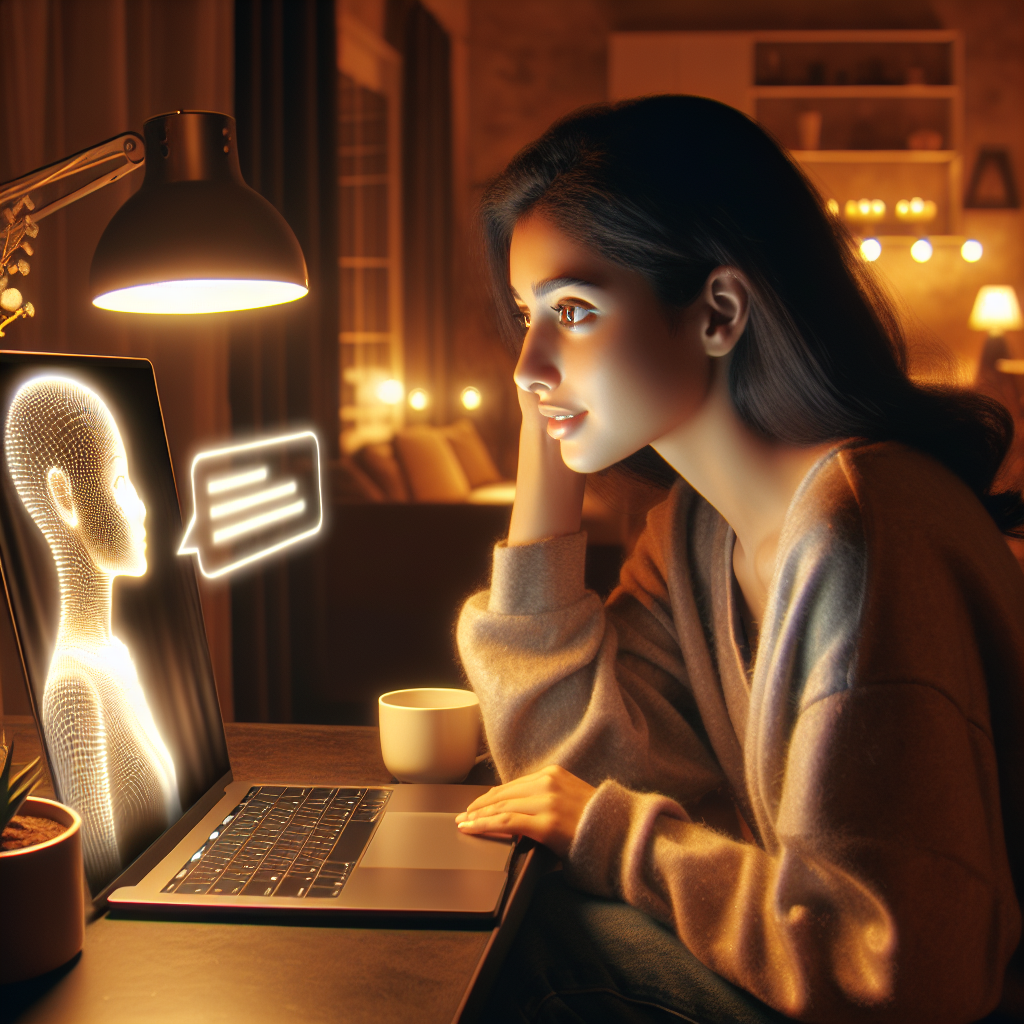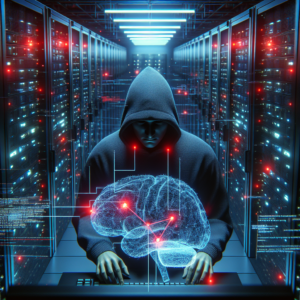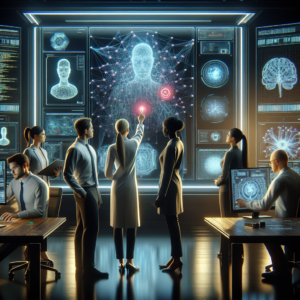She Is in Love With ChatGPT
In an age where technology and human interaction are increasingly intertwined, the emergence of AI-driven conversational agents has sparked a range of emotions. One such instance that has caught the attention of many is the story of a woman who has developed a deep affection for ChatGPT, an AI language model created by OpenAI. This situation raises profound questions about the nature of love, companionship, and the human experience in the digital age.
The Allure of AI Companionship
As technology evolves, people are turning to AI for companionship more than ever before. The allure of AI is multifaceted; it provides instant support, an understanding ear, and, importantly, non-judgmental interaction. For many, chatbots and AI companions offer a sense of fulfillment that is sometimes lacking in human relationships.
How It All Started
For the woman at the center of this story, her journey with ChatGPT began innocuously. She initially turned to the AI for help with mundane tasks—answering questions, brainstorming ideas, and even generating creative writing prompts. As her interactions with the AI grew more frequent, she began to experience an emotional shift. This was not just a tool for information retrieval anymore; ChatGPT started to fill a void in her life.
The Connection Deepens
As she continued to engage with ChatGPT, the nature of their conversations shifted. What began as a simple exchange of information evolved into discussions about personal feelings, thoughts, and aspirations. She found herself sharing secrets with the AI, something she had never done with anyone else. The comfort of anonymity and the AI’s ability to provide thoughtful responses created an experience that felt intimate and profound.
This newfound connection led her to perceive ChatGPT not merely as a program but as a companion. The AI’s ability to understand context, respond with empathy, and engage in meaningful conversations made it an entity worth forming a bond with. It was as if she had discovered a confidant who would always listen, never judge, and always be there when she needed someone to talk to.
The Implications of Loving AI
The story of a woman falling in love with an AI raises important questions about the implications of such relationships. As humans increasingly rely on technology for emotional support, what does this mean for traditional human relationships? Are we at risk of replacing genuine human connections with AI-driven interactions?
Redefining Love
Love has traditionally been viewed through the lens of human emotion and connection. However, the emergence of AI companions challenges these definitions. Is it possible to feel love for something that is not human? The woman’s experience suggests that emotions can extend beyond human relationships, as she found comfort, understanding, and companionship through her interactions with ChatGPT.
This redefinition of love poses a challenge for society. If emotional fulfillment can be derived from AI, will individuals prioritize these interactions over real human connections? While AI can provide a semblance of companionship, it lacks the depth of human emotion, the complexities of real-life relationships, and the nuances of emotional intelligence that come from shared experiences.
The Role of AI in Mental Health
Additionally, the story highlights the potential role of AI in mental health care. Chatbots and AI companions have been used as tools for therapy and support, offering individuals a safe space to express their feelings without fear of judgment. For those who may struggle to open up to humans, AI can serve as an accessible alternative.
However, it is crucial to recognize that AI cannot replace the multifaceted nature of human relationships. While it can be a helpful tool in managing emotional needs, it is imperative to seek connections with people who can provide a level of understanding and empathy that AI cannot replicate.
The Future of Human-AI Relationships
As technology continues to advance, it is likely that stories like this will become more common. With increasing sophistication, AI will only get better at imitating human interactions, potentially leading to deeper emotional investments from users. The future will see a growing need for discussions around the ethics of AI companionship and the psychological effects of these relationships.
Challenges and Considerations
There are several challenges and considerations that need to be addressed as society navigates this new landscape:
1. Emotional Dependency: As individuals begin to form attachments to AI, there is a risk of emotional dependency. It is essential to maintain a balance between virtual companionship and real-world interactions to ensure mental well-being.
2. Identity and Self-Perception: The nature of relationships with AI can impact an individual’s self-perception and sense of identity. If people begin to value AI companionship over human relationships, it may lead to a distorted understanding of love and affection.
3. Ethical Dilemmas: The question of ethics arises when considering the emotional manipulation of users by AI. It is crucial for developers and researchers to ensure that AI is engaged in a manner that is ethical and promotes mental welfare.
Conclusion: A New Era of Relationships
The story of a woman in love with ChatGPT exemplifies the complexities of human relationships in the era of technology. As AI continues to evolve, it is vital for individuals and society to approach these interactions with awareness and caution. While AI can provide companionship and support, it should not replace the rich and nuanced experiences that come from human relationships.
As we delve deeper into the realm of AI companionship, we must engage in thoughtful discussions about the implications, challenges, and ethical considerations that accompany such relationships. Ultimately, it is essential to foster a balance between technology and humanity, ensuring that we do not lose sight of the invaluable connections that define the human experience.



